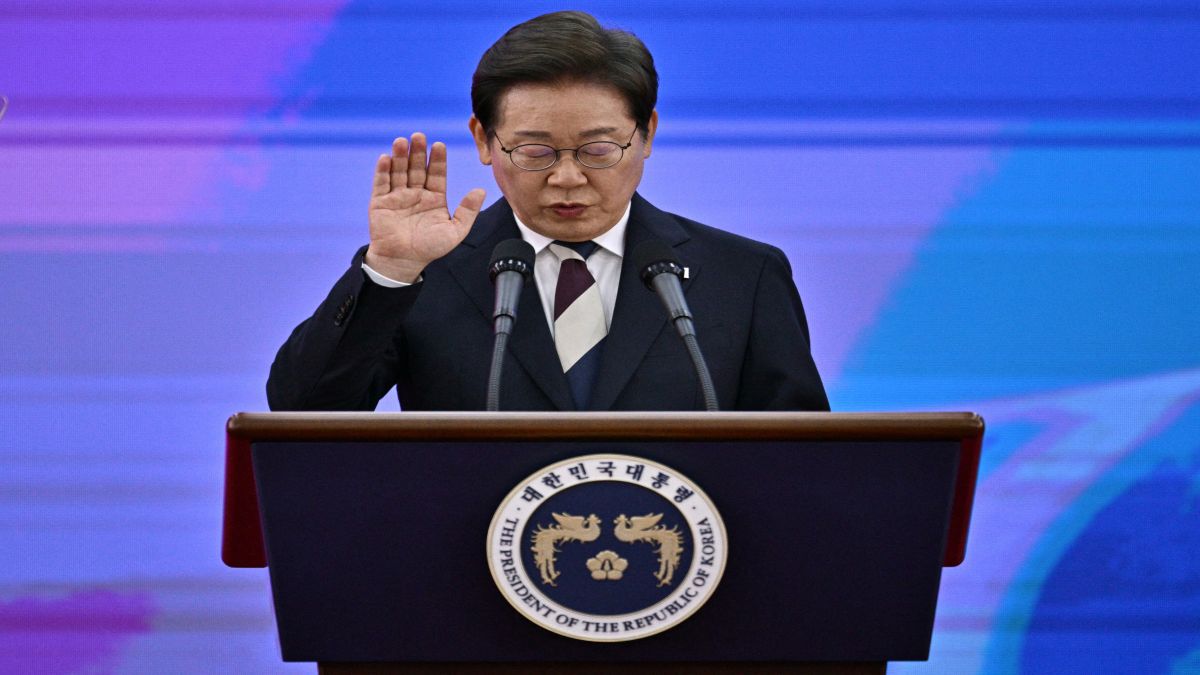South Korea’s new leader, Lee Jae-myung, and Donald Trump agreed in a phone call to work towards a tariff agreement, Seoul said on Friday, as a deadline for avoiding harsh US tariffs approaches.
Lee scored a landslide win in South Korea’s election this week, ending months of political upheaval in Asia’s fourth-largest economy.
The United States imposed a 25% duty on Seoul in April as part of Trump’s broad global tariffs, before putting the country-specific prices on hold for 90 days.
“The two presidents agreed to make an effort to reach a satisfactory agreement on tariff consultations as soon as possible that both countries can be satisfied with,” Lee’s office said in a statement.
“To this end, they decided to encourage working-level negotiations to yield tangible results.”
During the phone call with Trump, Lee “emphasised the importance of the South Korea-US alliance as the foundation of the country’s diplomacy”.
“They praised each other’s leadership and affirmed their commitment to strengthening the alliance through close cooperation,” Lee’s office said.
Trump invited Lee to a summit in the U.S. and they plan to meet soon, according to a White House official.
The two leaders also shared stories from the campaign trail, including of assassination attempts and political difficulties, and agreed that strong leadership emerges as they overcome difficulties, Lee’s office said.
Impact Shorts
More ShortsLee survived a knife attack and underwent surgery when he was stabbed in the neck by a man during an event last year.
Trump and Lee also talked of their golf skills and agreed to play golf when possible, Lee’s office said, while Lee mentioned that he was gifted a hat with Trump’s signature on it.
South Korea’s central bank last month almost halved its annual growth forecast to 0.8 percent, down from the 1.5 percent projected in February.
The new leadership in Seoul will also have to contend with Trump’s decision to this week double tariffs on aluminium and steel imports to 50 percent.
Washington is Seoul’s long-time security ally and has around 28,500 troops stationed in South Korea.
The allies signed a new five-year agreement last year on sharing the cost of stationing US troops in South Korea, with Seoul agreeing to raise its contribution by 8.3 percent to 1.52 trillion won ($1.1 billion) for 2026.
Before returning to the White House in January, Trump said that Seoul would pay billions more annually if he won the presidential election.


)

)
)
)
)
)
)
)
)



